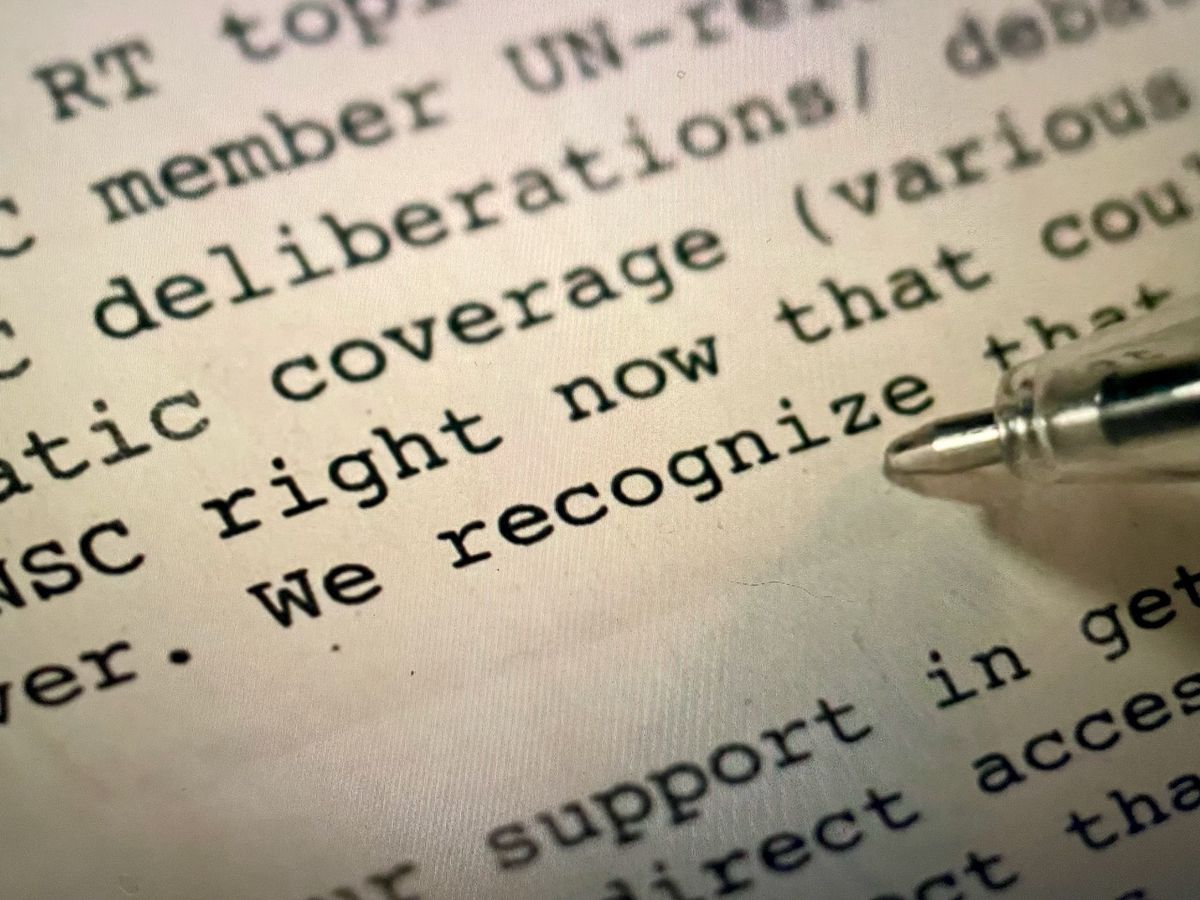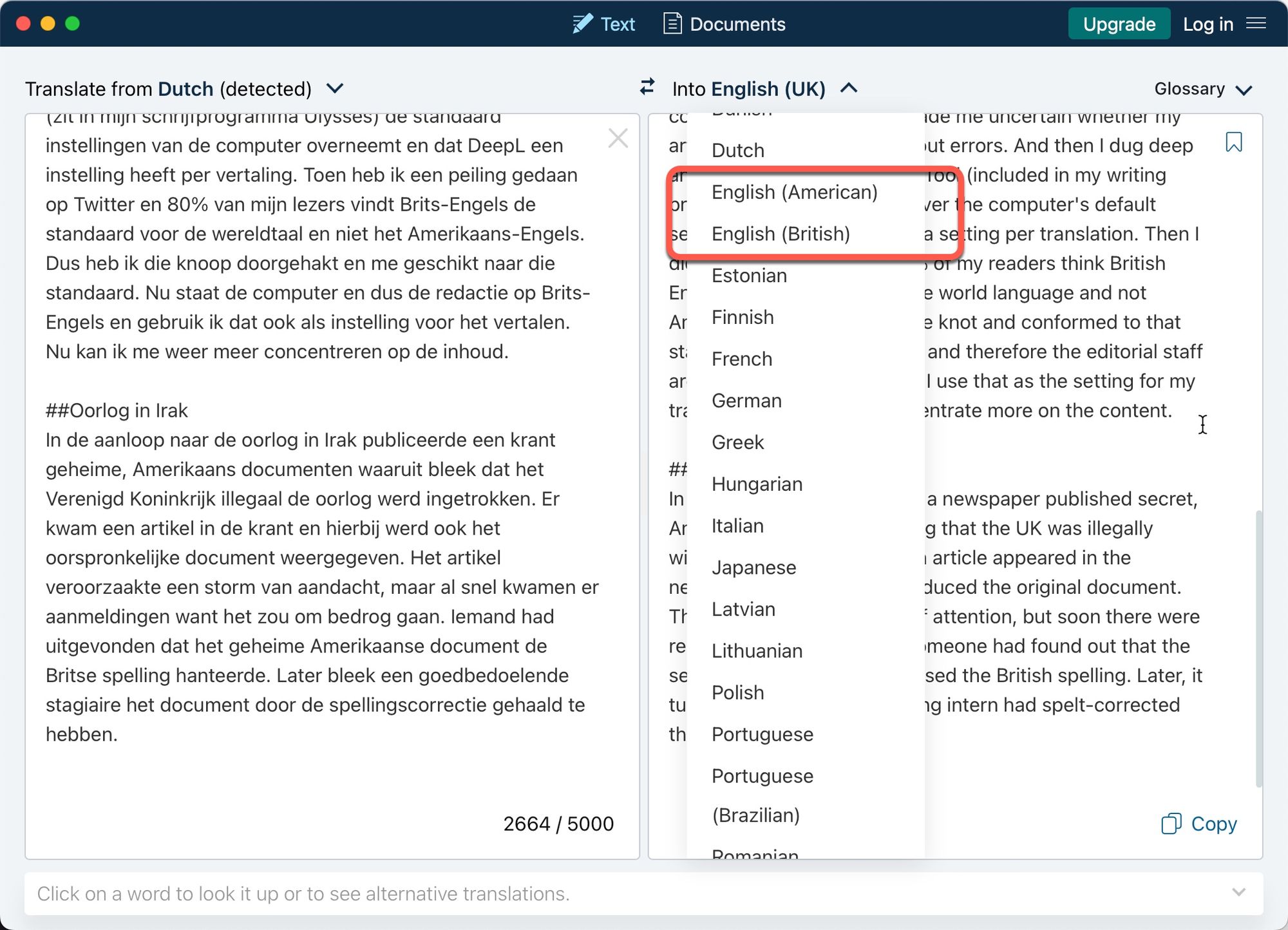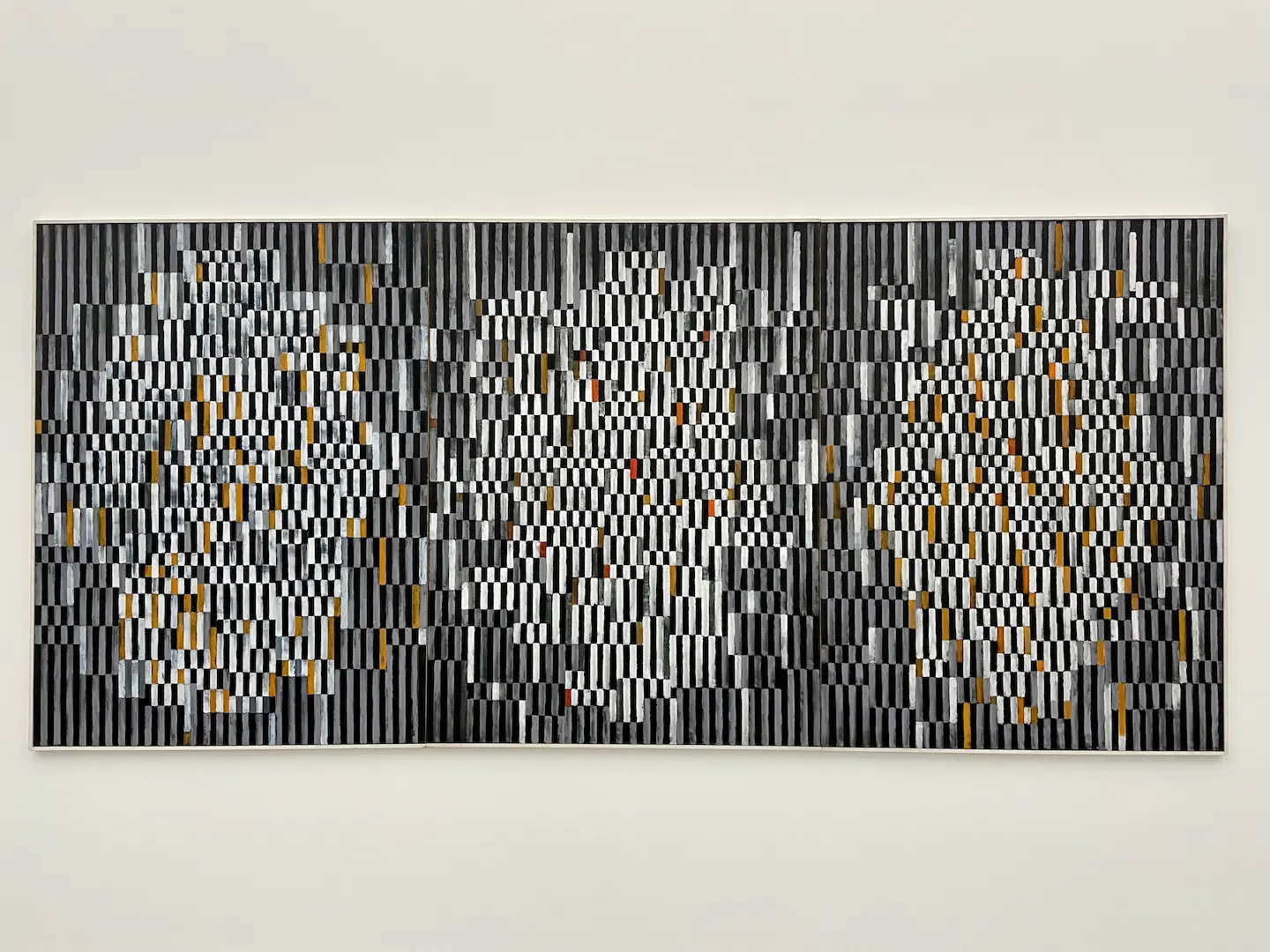English editor correcting the American translator
When automated translation is part of your writing workflow, make sure to align the tools to be consistent in terms of language and spelling variants.

There is a difference between the vocabulary and spelling of British English and American English. And the difference is minimal, but big enough to cause annoyance and even drama. A story about how spelling correction caused a minor argument between my translator and editor, and how spelling played a role in the run-up to the Iraq war.
Writing in one's own language
I start all the articles on this blog in my own language, Dutch. That works better and feels more creative, freer. Many a reader will recognise this, no matter how good and thorough the English. After a first draft, or a few drafts, I develop an article. Then I first edit the own language via LanguageTool and then translate the article.
The translation goes via DeepL. The quality of this is convincing. I copy my text and paste it into the translation application. The translated text goes into a newly created file. I read it carefully and again correct and edit it with the help of LanguageTool, the language assistant.
Quarrelling
Until recently, there were quarrels, the editor was picking a fight with the translator. And vice versa. One programme corrected the other, and it made me uncertain whether my articles were published without errors. And then I dug deep and found out that LanguageTool (included in my writing programme Ulysses) takes over the computer's default settings and that DeepL has a setting per translation.

Then I did a poll on Twitter and 80% of my readers think British English is the standard for the world language and not American English. So I cut the knot and conformed to that standard. Now the computer and therefore the editorial staff are set to British English and I use that as the setting for my translations. Now I can concentrate again on the content.

War in Iraq
In the run-up to the Iraq war, a newspaper published secret, American documents showing that the UK was illegally withdrawing from the war. An article appeared in the newspaper, which also reproduced the original document. The article caused a storm of attention, but soon there were reports that it was a hoax. Someone had found out that the secret American document used the British spelling. Later, it turned out that a well-meaning intern had spelt-corrected the document.
Stephen Hawking's American voice
Stephen Hawking's switched from standard English to American English when he found a machine to synthesize his words. Weird, but his computer voice, and accent, is much better known than the personal voice he lost. To the point that people, like me, would think he was American.
"It's American!" "Is that a problem?"






